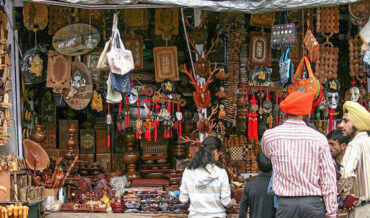Contents
Periodicals
The following musing is an excerpt from a booklet under the same name, authored by Murarji Vaidya and published by the Forum for Free Enterprise in 1956. The author addresses the objectives of the Second Five Year Plan proposed by the Planning Commission of India – highlighting the restrictions on
Editorial Team
- May 3, 2024
V.M Tarkunde’s “Fundamental Right to Property” explains how the right to property is fundamental to a human being to enjoy other fundamental rights.
Editorial Team
- December 13, 2023
The essay by J M Lobo Prabhu, MP Lok Sabha 1967 traces the development of the Indian constitution factoring in the various influences that have played a role in its making.
admin
- June 21, 2023
Written in the late 1950s, Democracy in India is Atulananda Chakrabarti’s attempt at redefining democracy. It covers two articles, “Role of Universities” and “Democracy for New India- Give Us the Definition.” In the former, he talks about universities as the central figures in shaping people’s ideas and thoughts. He says
Editorial Team
- September 22, 2022
Authored by NK Ganapaiah, Real Land Reforms talks about the need to produce new wealth for India’s prosperity by expanding agriculture. He proposes the modernization of agriculture, animal husbandry, horticulture, fisheries, forestry, piggery, and poultry to solve national poverty and unemployment. He highlights land burden, fragmentation of holdings, unsound policies
Editorial Team
- September 12, 2022
In End to Appeasement, MR Masani expresses his displeasure at Nehru’s foreign policies on the issue surrounding Chinese aggression. He questions if India truly follows its non-alignment policy. He vociferates through the essay his disapproval for Nehru’s tactics of avoiding conflicts, suppressing facts from the Parliament, and failing to raise
Editorial Team
- September 2, 2022
In this essay, MR Masani evaluates the merit of Swatantra Party’s ideas and discusses the Party’s agenda in the February 1976 elections, listing qualifications for being a stronger candidate than Congress. Drawing inspiration from the Bible, Lincoln, and Gandhi, the Swatantra Party believed in limited government and trusting the conscience
Editorial Team
- September 2, 2022
The Social and Religious Decay was written by C. Rajagopalachari. It begins by explaining how one must have an innate desire to improve and help others. Any policy sabotaging these “social urges” is harmful. Emphasizing the role of free will, Rajagopalachari evaluates Congress’ policies as forceful, harming voluntary social cooperation
Editorial Team
- September 2, 2022
The Essence of Democracy was authored by Indian Parliamentarian and liberal thinker, Minoo Masani. It was originally published by the Harold Laski Institute of Political Science, Ahmedabad in March 1989. In the essay, Masani discusses several necessary conditions of a liberal democracy. In the Indian context, he discusses ideas of
Editorial Team
- August 12, 2022

Supported by the Friedrich Naumann Foundation for Freedom.
© 2020 All Rights Reserved.

